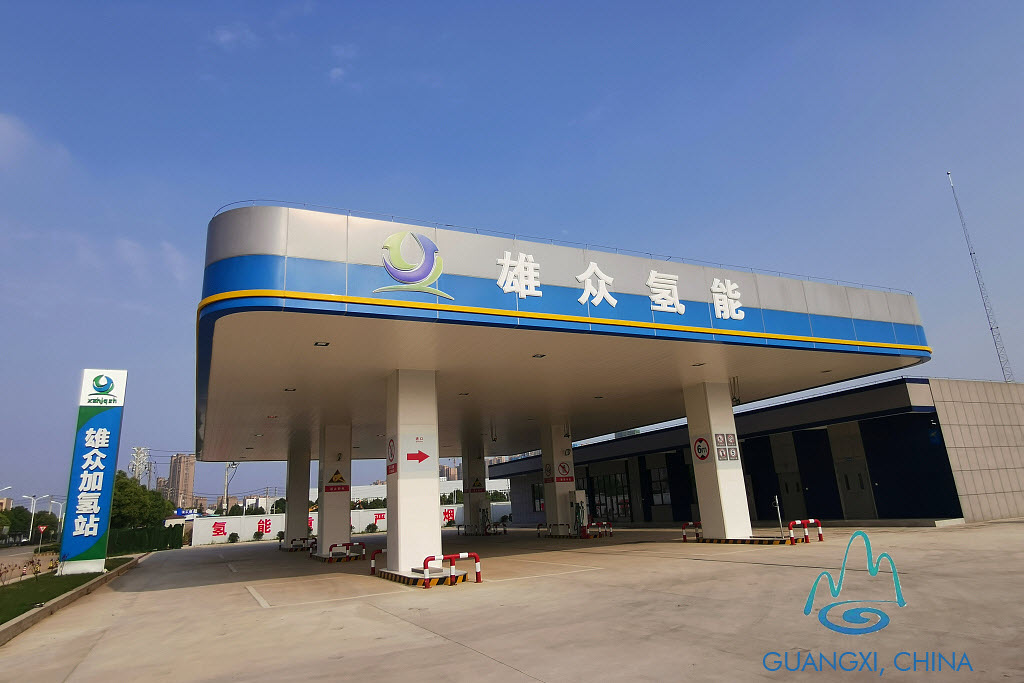
Datong, the coal capital of China, has a new goal — transforming into a hydrogen hub, as the mined-out city is gradually losing competitiveness and looking for new growth engines.
“We will strive to develop new energy, with hydrogen energy at the core,” said Wu Hongwen, mayor of Datong in north China’s Shanxi Province.
Less noisy and more environment-friendly, hydrogen-powered vehicles have become a new favorite of China’s urban public transport.
According to China’s guideline on strategic emerging sectors in the 13th Five-Year Plan, the country will promote research and development of fuel cells, step up building hydrogen stations, and achieve the mass production of fuel cell vehicles by 2020.
“Regardless of small sales, hydrogen fuel cell vehicles are an opportunity for Datong to transform its industries,” Wu said. “We must seize this chance.”
The city churned out over 7.5 percent of the country’s annual coal output at its peak in 1999. Coal mining in Datong dates back 1,500 years, and its modern mining industry took shape in the late Qing Dynasty (1644-1911).
However, the heavy environmental costs have made Datong an exemplar of China’s resource-depleted cities scrambling to build new economic pillars.
Datong has put 50 hydrogen-powered buses onto its streets. The vehicles can run up to 500 km and operate well at minus 30 Celsius degrees. It is building a complete industrial chain related to hydrogen energy and locking an array of enterprises in.
Wuhan HydraV Fuel Cell Technologies Co., Ltd. put into production its first fuel cell engine production line in Datong last year. Currently, it is building a hydrogen energy industrial park with an investment of 2.7 billion yuan (US$380 million).
Zhou Qiang, the general manager’s assistant of HydraV, said it would be the company’s largest industrial base in northern China, with an annual production capacity of at least 50,000 hydrogen fuel cell engines within three years.
HydraV is not alone in pioneering the city’s hydrogen energy industry. Beijing Shouhang IHW Resources Saving Technology Company Co., Ltd has set up a branch in Datong, with a plan to build three hydrogen production factories, 10 to 20 refueling stations, and three to five distributed hydrogen power plants here in the following five years.
However, Datong looks beyond hydrogen-powered vehicles. The city sees an annual coal output of over 100 million tonnes regardless of its exhausted quality coal resources. Producing hydrogen from coal is a key step for the city to move towards a hydrogen capital.
Datong Coal Mine Group Co., Ltd. is calling for bids for its 5,000-tonne coal-to-hydrogen project, which is expected to produce 110,000 tonnes of hydrogen each year when it completes.
“The cost of producing hydrogen from coal on a large scale is around 0.8 yuan per cubic meter, much cheaper than from natural gas and water electrolysis,” said Zhang Junlong, director with the Group’s hydrogen energy development preparation office.
According to Wu, the cooperation between Datong and several automakers is under discussion, hoping to build a complete industrial ecosystem from hydrogen production and storage to manufacturing of core hydrogen fuel cell components as well as vehicles.
Despite the high cost, hydrogen-powered buses have joined the bus fleet on the city’s streets. Wang Ying, a 23-year-old citizen, deliberately missed two electric buses and boarded a fuel cell bus.
“It is a kind of metamorphosis,” Wang said. “Coal once polluted our city. Now we are turning to hydrogen that can offer us clearer skies.”
Read the most up to date Fuel Cell and Hydrogen Industry news at FuelCellsWorks




